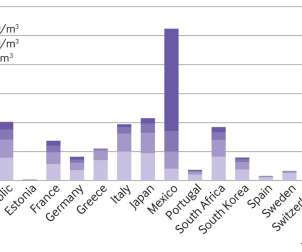Global study links daily exposure to ozone pollution to increased risk of death
Green Car Congress
FEBRUARY 11, 2020
Daily exposure to ground level ozone in cities worldwide is associated with an increased risk of death, according to the largest study of its kind, published in an open-access paper in The BMJ. Ground level ozone is a highly reactive gas commonly found in urban and suburban environments, formed when pollutants react in sunlight.












Let's personalize your content